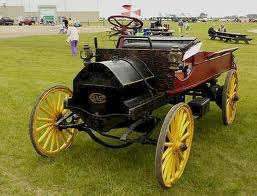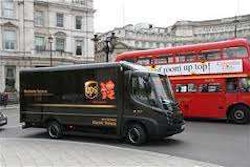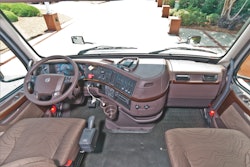
The vast majority of word origins are lost in the mists of time. Anthropologists a few years ago found a Stone Age tribe in New Guinea (I think it was) whose word for sneeze is “ha-choo.” But, for the most part, we don’t know who decided to call a pot a “pot” or a leg a “leg” or a river a “river” or why.
Technology moved at a pretty slow place for most of human history. There simply wasn’t a huge need to come up with a lot of new names for things. Until recently, that is. The past 150 years or so have seen an utter explosion in new things – things that simply didn’t exist before and had to be called something.
Usually, these new names started out describing something. The first motorized vehicles were “horseless carriages;” a pretty apt description of the thing in question. It was also a mouthful to say. So “automobile” became fashionable – and still survives today as sort of the formal name for things that eventually became called, simply, “cars.”
The first automobiles designed for use on farms were similarly called “traction engines.” It didn’t take long for the word “tractor” to supplant that designation, either.

Early on, it became apparent that there were going to be different types of cars. There were luxury cars. There were basic cars. And there were going to be big, beefy cars that would carry heavy payloads. So the name-makers went back to work and we saw more new terms enter the language: Phaeton, Coupe, Sedan, Roadster, Limousine, Touring Car and (eventually) Sports Car found there way into our speech to describe all the new types of automobiles running about. And there were also vans and buses and commercial cars to denote the various types of work vehicles that were starting to become more numerous as well.
Before the advent of the 20th Century, a “truck” was a wheeled carriage used to transport a heavy item around – most notably a field cannon. A somewhat related term was a “truck farmer,” who used a cart to transport his crops to market.
By 1901, the term “motor truck” was becoming the preferred term for these useful vehicles. The more formal term for these vehicles was “Commercial Car.” A term that appealed to CCJ’s founding editorial staff: The magazine was initially called “Commercial Car Journal.”
But, Americans being Americans, that was still a lot of syllables to spit out during a busy day. So, more and more, “truck” began to be become commonplace, and by 1913, was well on its way to being the accepted terminology for these vehicles that figure so prominently in our lives today.









